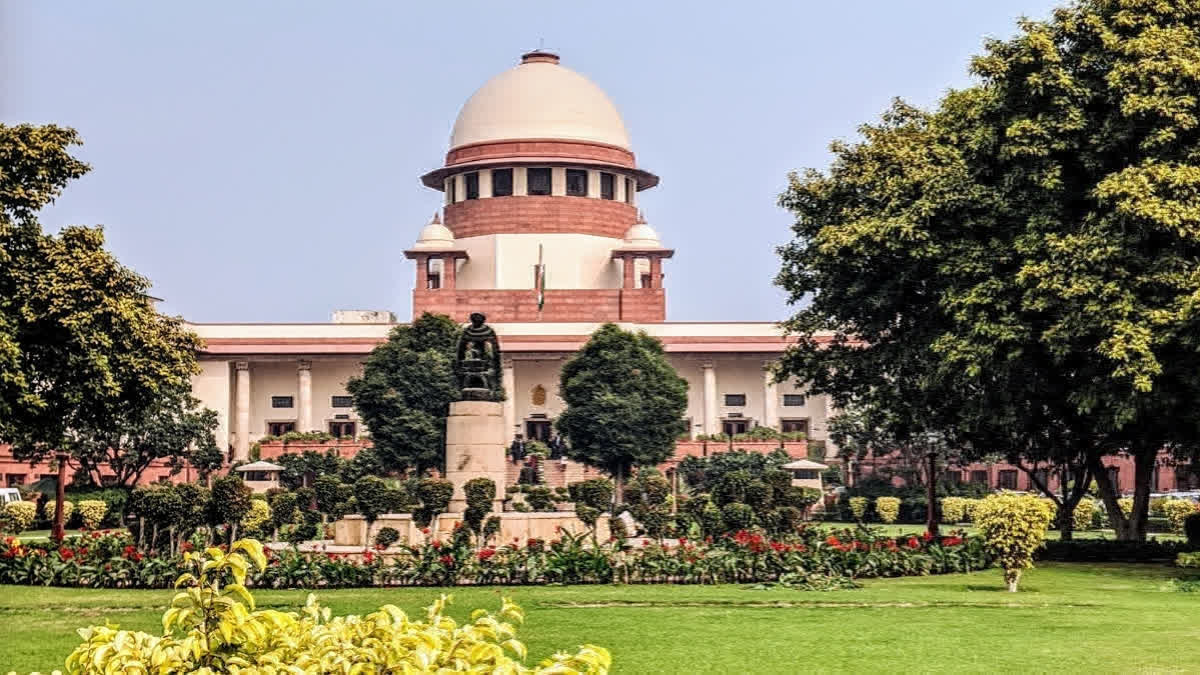New Delhi: The Supreme Court on Monday junked pleas by TMC MP Abhishek Banerjee and his wife Rujira Banerjee against the summons by the Enforcement Directorate (ED) to them to appear at its Delhi office in connection with a money laundering probe linked to the alleged coal theft and illegal extraction scam in West Bengal.
A bench comprising Justices Bela Trivedi and Satish Chandra Sharma said: "We do not find any substance in the challenge made by the appellants to the summons issued to the appellants under Section 50 of the PMLA (Prevention of Money Laundering Act)".
The bench said as contemplated in the sub-section (3) of Section 50, all the persons summoned are bound to attend in person or through authorised agents as the officer may direct and are bound to state the truth upon any subject respecting which they are examined or make statements, and to produce the documents as may be required.
"We therefore do not find any illegality in the summons issued by the respondent - ED summoning the Appellants to its office at Delhi, which also has the territorial jurisdiction, a part of the offence having been allegedly committed by the accused persons as alleged in the complaint. It is also not disputed that the Appellant No.1 (Abhishek Banerjee) being a Member of Parliament has also an official residence at Delhi," said the bench.
Banerjee and his wife Rujira Banerjee had moved the top court challenging a Delhi High Court order of March 11, 2022, which declined to quash summons issued by the central agency.
The appellants counsel relied on the annual report of the Ministry of Finance, which according to them has stated about the organisational structure of ED, demarcating the territorial jurisdiction of various zonal offices.
The bench noted that according to the counsel such instructions by the Department of Revenue are for the exercise of powers of investigation by the ED as mandated by Section 51 PMLA and therefore must be strictly complied with.
"The said submission also being fallacious cannot be accepted. Apart from the fact that the document relied upon is an annual report by the Ministry of Finance, showing the organisational structure of the ED, the same could not be construed as the directions issued by the Central Government for the purpose of the exercise of powers and performance of the functions by the authorities as contemplated in Section 51 of the said Act," said the bench.
"As stated in the said Report, the said Offices of the Directorate of Enforcement all over India are set up to ensure that the money laundering offences are investigated in an effective manner and they act as deterrence for the potential offenders of the money launderers," said the bench.
The bench said pertinently, the Headquarters Investigation Unit (HIU) has not been restricted to any territorial jurisdiction in the said organisational structure and the present case was recorded at the HIU in 2020.
According to the ED in the complaint, filed against the accused persons before the special court, PMLA, Rouse Avenue courts, New Delhi, Rs 168 crores were allegedly received by the inspector Ashok Kumar Mishra from the co-accused Anup Majee to be delivered to his political bosses. The said Rs 168 crores were transferred through vouchers to Delhi and overseas, which clearly established adequate nexus of the offence and the offenders within the territory of Delhi, noted the bench.
"The submission made on behalf of learned counsel for the appellants that the conferment of power upon the Authority under Section 50 of PMLA excluding the procedural safeguards would be contrary to the standard of 'procedure established by law' under Article 21 of the Constitution, is also thoroughly misconceived," said Justice Trivedi. The bench said the summons can be issued even to witnesses in the inquiry so conducted by the authorised officers.



